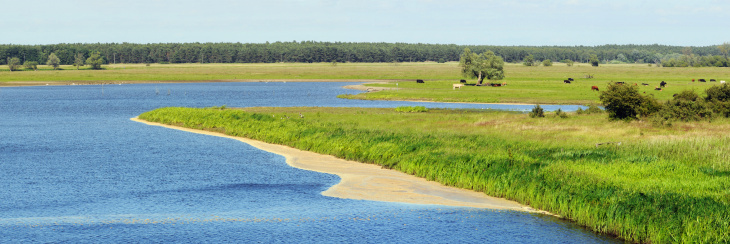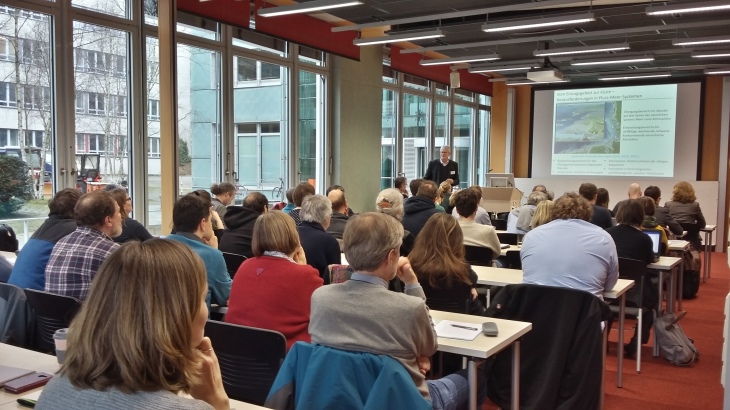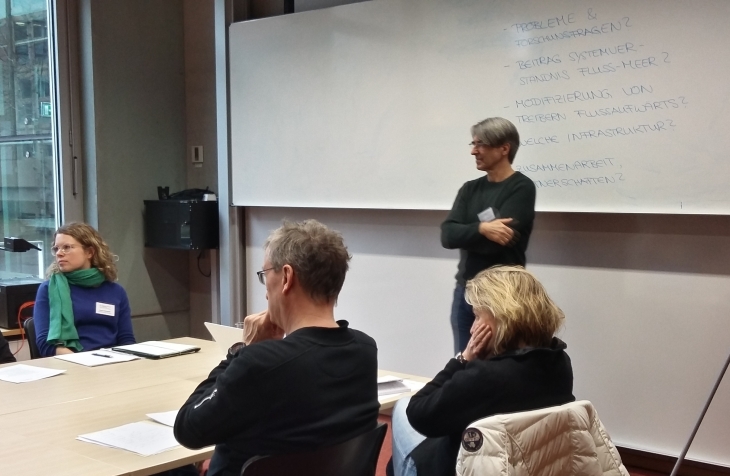Challenges along the tidal part of the Elbe and adjacent North Sea
On March 16th, more than 60 regional actors met for the Elbe-North Sea Supersite Workshop in Hamburg to discuss future research projects.

The river Elbe is of great ecological, economical and societal importancePhoto: iStock/hsvrs
Elbe and North Sea are of great ecological, economical and societal importance, thus a sustainable management is urgently needed. Therefore we require interdisciplinary knowledge about natural processes in the Elbe-North Sea System, as well as about the effects of anthropogenic activities including climate change.

Around 60 participants attended the Elbe-Nordsee Supersite Workshop. Photo: HZG/Sina Bold
The Helmholtz-Zentrum Geesthacht (HZG), Institute of Coastal Research, is thus engaging on one hand in the European research infrastructure initiative DANUBIUS-RI („International Centre for Advanced Studies of River-Sea-Systems“) and on the other hand in the national research infrastructure initiative MOSES („Modular Observation Solutions for Earth Systems“) of the Helmholtz Association of German Research Centres. The latter is focussing mainly on extreme events. Both research infrastructures are currently planned and/or set-up in the Elbe and North Sea area. The overall aim is to supplement already existing infrastructures and monitoring programmes to develop an enhanced process and system understanding.

Discussions at the workshop in Hamburg. Photo: HZG/Sina Bold
On March 16, over 60 regional stakeholders followed the invitation from HZG to a Elbe-North Sea Supersite Workshop, to hear about the initiatives DANUBIUS-RI, MOSES and the preliminary plans for the tidal part of the Elbe and the adjacent North Sea. In selected short presentations Dr. Tina Sanders, Dr. Johanna Irrgeher and Dr. Johannes Pein gave an insight into their research. The three Post-Docs from HZG are dealing for example with nitrogen dynamics, with chemical fingerprinting of water and sediment, as well as with modelling of water and sediment dynamics in Elbe and North Sea. Afterwards the participants discussed in smaller groups research needs and questions, as well as corresponding research infrastructure. Issues such as river and coastal engineering, water quality, as well as environmental protection were considered amongst others.
It became obvious that for a sustainable management of Elbe and North Sea the whole River-Sea System has to be taken into account. However, this requires a step change in science, policy and society, as well as the cooperation of different stakeholders across disciplinary, regional and national borders.
More Information
Contact
Phone: +49 (0)4152 87-1891
E-mail contact